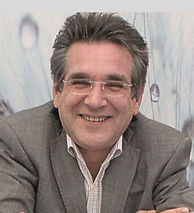
Odor Control and Fragrance enhancement in Residential Buildings and Occupied Spaces

Dr. Thomas Caesar
Vice President Global Filter Engineering
Freudenberg Filtration Technologies, DE
Speaker Bio
Dr. Thomas Caesar is a renowned air filtration expert with over 25 years of experience in the global filtration industry. He received a diploma in Chemical Engineering from the Technical University of Karlsruhe and his doctorate degree in thermodynamics and fluid dynamics from the University of Aachen (RWTH). Since 1999, Dr. Caesar has been employed by Freudenberg Filtration Technologies, a globally leading manufacturer of filtration solutions, where he has held various positions in sales and engineering. As Vice President Global Filter Engineering Industrial, he is currently responsible for the global technical product management and filter engineering in industrial filtration.
Dr. Caesar is actively contributing to industry guidelines at VDI, VDMA, and Eurovent. He co-authors various European standards at CEN and international standards at ISO. In ISO, he serves as Convenor of WG12 “Sustainability” and was as project leader of part 1, intensely involved in the development of ISO 16890. Dr. Caesar is Chairman of the Product Committee “Air Filters” at Eurovent Certita Certification and Vice Chairman of the Product Group “Air Filter” at Eurovent Association.
Presentation time
December 2, 2025
8:25 am - 8:40am EST
Abstract
Odors in indoor environments are critical determinants of occupant well-being, influencing both psychological comfort and physiological health. While malodors can lead to discomfort, distraction, and reduced cognitive performance, certain airborne substances—such as volatile organic compounds (VOCs), sulfur-containing gases, and other chemical emissions—may pose direct health risks, including mucosal irritation, headaches, and fatigue. Although odor perception is inherently subjective, its effects are consistently observed across enclosed spaces, impacting mood, stress levels, and overall satisfaction with the indoor environment.
A key challenge in odor management arises from the rapid olfactory adaptation of the human nose. Continuous exposure to an odor typically results in desensitization within minutes, diminishing the ability to detect potentially harmful or disruptive compounds. This sensory limitation can lead to prolonged exposure without awareness, emphasizing the importance of continuous air quality monitoring and control.
Furthermore, air filtration systems may alter the composition of indoor air in ways that affect odor perception. When specific gases are removed, the remaining compounds may interact to produce new, perceptible odors. This phenomenon complicates odor control strategies and may necessitate active odorization techniques. The deliberate introduction of controlled fragrances can help mask undesirable smells and enhance perceived air quality, provided that such interventions are carefully designed to avoid additional sensory or health burdens.
Understanding the complex interplay between odor sources, human perception, and air treatment technologies is essential for creating healthier, more comfortable indoor environments.